**Updated 30 May 2021 – NOW Son plays Valorant, so he’s not on unlimited game time anymore
This started out as accessing Digital Asset market via more traditional derivative means, but I got distracted by VIDEO GAMES. Which do people want to read first: How To Access The Digital Assets Market Through Traditional Structured Investment Products Offerings, or How To Get The Most Out Of Your Kids’ Love Of Video Games. This is hard. So the story goes…
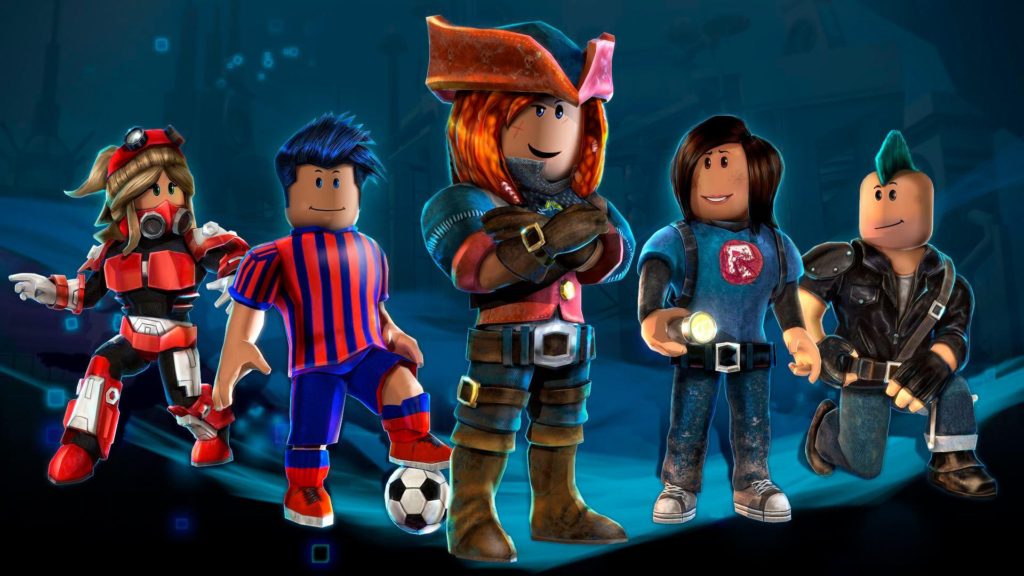
 Valorant? Yes we know it’s the hot new(ish) thing. Reason it’s not leading is part of our family’s personal journey in video game-fueled relationships which you’ll eventually find out in this post.
Valorant? Yes we know it’s the hot new(ish) thing. Reason it’s not leading is part of our family’s personal journey in video game-fueled relationships which you’ll eventually find out in this post.Practically every parent who has handed their cellphone to their child to play games on (and more) would understand how much we spend on in-game purchases without thinking about it. Roblox-playing tweens already trade in-game gifts – XP, skins/ avatars, virtual weapons/special abilities with a sophistication that may surprise you, if you ask your kid to tell you a bit more about their latest gaming purchase/ trade with their friends. (They also engage in all manner of wranglings to try to get each other to give them favours in the games :D)
Think digital version of what goes down on Pawn Stars from my previous post – instead of Samurai swords and cannons, now it’s superpowers and skins, dragon eggs and mutant cats. Don’t scoff – the most expensive Cryptokitty is named “Dragon” and found a new virtual wallet for the USD 172,000* equivalent of ETH (Ether, second largest cryptocurrency by market cap after Bitcoin, of the Ethereum blockchain). The next two runners up in expensive weird animals traded over USD 100,000 as well.
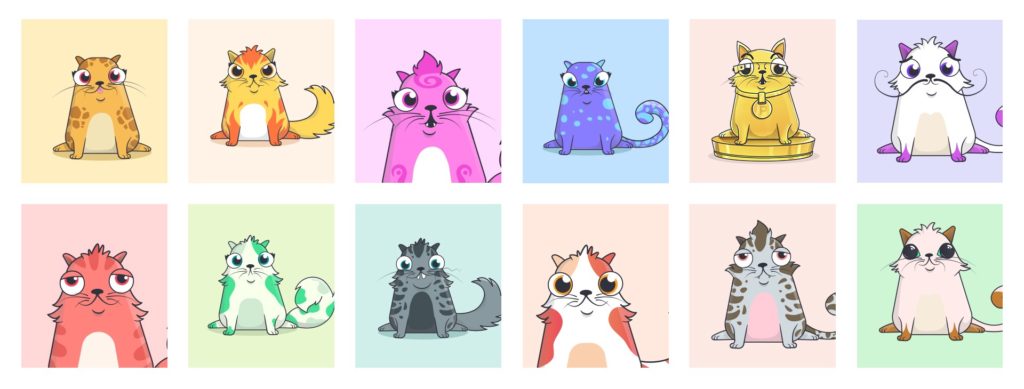
*Dragon’s sale caused some head-scratching, because she is a ninth-generation cat, ie fairly “new”. The other two kitties to exchange hands above the USD 100k mark are Gen-0s. And gamer reactions to all three trades are a good indication how our very human purchase preferences have not evolved since Pawn Stars – first edition Cryptokitties trading prices mimic that of say, first edition physical books – original and old, and therefore rare.
Well… better the weird virtual cats than the traditional stock market with Game Stop shares? (Mark Cuban told press his 11 year old son made money off the massive fundamental-light run up in Game Stop, and I was just wondering how many more billionaire’s kids are cutting their teeth in the stock market because I can’t keep up with actual data and analyst research, for the Reddit chatrooms.)
A little closer to “normal” parenting adventures, one of 13 year old Son’s closest friends dropped serious birthday cash recently to greatly increase his chances at achieving a coveted game level and special abilities for his game character. As in, given a choice of what he would like to spend his gift cash on, he did not choose clothes, comic books or even a cellphone – he chose to beef up his online gaming presence.
Except there was a glitch followed by an update, everyone got kicked off the server for maintenance, and he didn’t get to chalk up the hours playing That Purchase To Increase His Chances Of Achieving Coveted Game XP.
Call it “bad luck”, one of those unforeseen occurrences in the “market” that affects one of your “investments.” In this case, said investment was in a digital asset. (Completely understandable as well, if this illustration is one reason traditional Old Money in the Wealth Management space tends to be wary of accessing digital assets outright, for their investment portfolio.)
What happens next among Son’s friends is also vaguely familiar, except instead of a heated conversation with a bank relationship manager, we have a distraught 14 year old frantically typing messages to a server operator as his sympathetic friends closely watch this unfold (same difference :D) A lot of his purchase is not recoverable – the update no longer supports it. (This btw also parallels real concerns about Ethereum updates outside the gaming-verse, and how much of the older versions are supported by the upgrades. And then think whether it’s going to be easy currently to get a swap counterpart to hedge at least part of this, or insure it.)
After some serious inventory checking and pooling, the friends convert what in-game inventory they can spare (earned via mostly playing various challenges over the months), to lessen Birthday Boy’s pain. So Happy Birthday, Son’s Friend – you found out you have some real friends. Temporary loss of potential Gaming XP is a relatively low price to pay to find this out.
Somewhere in there is a story of unsung value from playing video games. We think the kids aren’t interacting, and sure they aren’t say, sitting around a café chatting (which is likely going to include a cellphone screen and social media anyways, nowadays), but the breadth and depth of what they learn about each other in game settings can be quite substantial:
Experiencing a Cheap Shot or Selfish Player carries a hidden value besides the obnoxious obvious: Someone who takes pride in a cheap shot, m-ight not have very much more to be proud of. Insecurity, in my opinion, is lethal. It makes people behave out of character, or else turns them into the worst version of themselves. Knowing this now, while playing video games, saves discovering you have a toxic teammate too late, when you have a school project and grade at stake (Not.. that it’s happened recently, I’m just sayin’<shrugs>).
That last is inspired by a trader in my former work life who once annoyedly typed in his inhouse market update (most traders disliked this chore and just wanted to get back to trading, resulting in some extremely candid and unfiltered remarks they rightly assumed would get cleaned up in the compilations for the bank sales teams to circulate to clients). So this trader mentioned one of his counterparts had once again dealt in a self-serving manner when the different houses were offloading various positions amongst themselves the previous day, and “when it’s (that counterpart’s) turn to need (a favour in the market)………”.
(On a separate note, that is also an illustration why I didn’t rush to write about ideas to theoretically hedge/ insure cryptos and other digital assets C2C via traditional derivative means – intuitively, without enough counterparts making a price or to potentially trade with, a potential insurer/hedger is likely to quote wide. There’s not enough players, let alone enough established players, in the crypto insurance market yet. There may “never” be, with current conditions once the hype dies down. There would have to be some major changes, because blockchain is like the anti-ESG investment – it uses a massive amount of energy. Said major changes then need some time to be tried and tested and accepted.
Between the attractiveness of Impact Investing (which many more traditional players in the wealth management sector can understand :)), the popularity of young activists like Greta Thunberg and the natural reluctance* of Old Money to trust technology, digital assets aren’t going to completely take over the investing world just yet. (*It is their money. If you cannot make them comfortable, they’re not buying. And the hacking of clouds and dodgy updates are bound to cause discomfort. If you push too hard, you risk mis-sell allegations. If your legal documentation hasn’t caught up yet, your own risk of mis-sell allegations is going to be higher… Then there is Deloitte‘s paper on tokenisation, which at one point likens it to traditional securitisation. Well to the extent securitisation can sub for tokenisation, there is then even less of a rush to get into the new and not yet tested/ sufficiently regulated platform right away, particularly if the original technology is increasingly widely recognised to have massive energy consumption.)

Architect and artist Chris Precht, formerly a large advocate of digital art assets, estimates that the amount of computing power needed to reproduce the 100 copies each, of 3 art pieces he was selling, equalled the amount of electricity the average European would consume in two decades.
Other independent researchers place the creation of your average NFT (non-fungible token) as having a similar-sized carbon footprint as 200 kgs of planet-warming carbon, or driving 500 miles in an American gasoline-powered car. Websites like CryptoartWTF share info about energy usage and environmental impact.
NYT story here.
This then means they need to find alternatives to the blockchain “proof of work”, for eg “proof of stake”… which then has its own limitations. Which means more updates. And that thing I said about updates accommodating older versions and insurers being willing to quote, not to mention where legal documentation and regulation is on these things. Think of a traditional Credit Default Swap (CDS) used to hedge bond exposure.
The legal definition of what constitutes a “default” that would trigger the swap in the Credit Default Swap required quite some work and experience, before relatively standardised documentation could be agreed on. That legal documentation became key, when things like too many CDSes had been written C2C, resulting in a shortage of defaulted bond to deliver when the swap was triggered. This then caused the bond after default to trade higher than it did before defaulting. (Geddit? People entered into CDS transactions to hedge part of their bond portfolio. The bond in their portfolio defaults, so theoretically they can deliver the defaulted bond and get the insurance money for it. EXCEPT, there was so much insurance bought/ traded that there was not enough defaulted bond. But there are still the legal contracts to be fulfilled. Hence increased demand for the defaulted bond, resulting in the price going up.
Now imagine what happens if you are deciding what to insure/swap in the digital space (don’t forget the updates), and what event to insure/swap against. (Also called Nerds of the World Rejoice! Fine. In the proper Engrish: Future very crucial area for techie-inclined lawyers. For now, here’s an obscure law that is becoming closely watched: Biometric Data Privacy. Protection of privacy for voice recognition, fingerprinting etc data. Do you have a right over your data, or does it then belong to the data surveillance company?)
Also, and this is true of any derivative contract or credit guarantee: Even if you made a winning trade, the guy who owes you may simply not be able to pay what they owe.)

But back to video games – another thing about taking a cheap shot in a game is the short-sightedness involved in the choice to instantly-gratify. It’s not that different from how little kids learn from sorting things out on the playground. And the Marshmallow Test. (All that’s just increasingly gone digital.) Just Google for more studies showing that the ability to delay gratification is correlated to performance. When it is cheap gratification, this is even more telling about whether this is someone you want to work with. Grownup traders absolutely think this way when they assist each other in a market (and then no one wants to take the time to type it :D)
We cannot work alone, we need teammates, colleagues, reliable contacts. From listening to and watching the kids’ video game interactions, I can tell you – the amount they can learn, about who is potentially toxic and who is a keeper, is absolute gold. Technology Strategist and Blockchain Educator Roop Singh talks about how very real the virtual/ video gaming space is to kids. Former options trader and 2008 financial crisis Fed advisor Dr Nassim Taleb said, “If you want to get an idea of a friend’s temperament, ethics, and personal elegance, you need to look at him under the tests of severe circumstances…”
The semblance of anonymity from using online personas (which groups of friends nonetheless recognise among themselves) makes for even more tells than face to face interactions or at school, where kids increasingly learn very quickly to hide their “true colours”. But your character is your character – who you are online is a very good indication who you really are IRL.
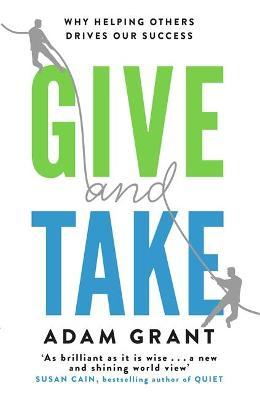
With the level of sophistication among youth today, what with increasing competitiveness at school and in sports, plus the use of social media and the internet, street smarts are even more important. So is the ability to find – and keep – Givers and avoid Takers. I’m just sayin’ <shrugs>. Adam Grant, organisational psychologist, writes in Give and Take that “Takers” incur a higher cost to organisations than you might initially think, because one “Taker” pollutes the organisation by turning many more “Matchers” (people who match favour for favour) into “Takers”. Selfish behaviour particularly from someone who is quite smart, makes the person even more toxic. This implies of course that personality trumps raw ability. It is the difference between Anakin and Luke Skywalker.
(On an aside, it’s a pretty good theoretical illustration – Anakin’s propensity for the Dark Side is linked to resilience in his personality (or the lack thereof), which would imply that particularly in talented children (Mozart is a real-life eg of gift and vulnerability), character-building activities like martial arts, uniform units and sports are especially crucial for them, towards a more “rounded” development.)
When someone’s (big) in-game purchase disappeared, that particular group of Son’s friends became a lot more sensitive to the monetary value of some of these virtual goods. Which led yes, to them starting to buy-low-sell-high the things. They wait for in-game offers and discounts, or play challenges that have virtual prizes up for grabs particularly if they know someone is looking for it. How do they know what’s hot? Because when that group was casting about to help their friend replace what he had lost, they found other servers where people were posting specific in-game items they were looking for… and the price they were willing to pay for them 


Next up is an obvious one: coding while gaming. Son’s first gaming account was set up by his extracurricular coding school. Just as Microsoft once developed the card game Solitaire for their PCs to get seniors used to the drag-and-drop function using a mouse, video games do get players accustomed to the syntax used in the various coding languages – Java, Javascript, Python et al.
(If you ask the kids who’ve been to coding camps why they start hopping between languages when gaming, they will say things like “Because Discord bans this function in JS but not in Python.” However, from typing game commands while playing, most kids who’ve never been to coding camps are already familiar with the basic syntax. Also, there are seriously good instructional Youtubes out there. Son has found some obscure ones that have like, 10 views, but are really useful. N-ot so much the very popular channels.)
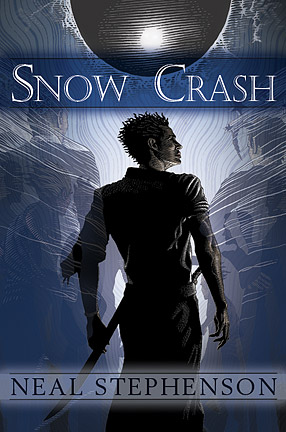
In the fiction-that-could-almost-be-real world of Neal Stephenson, his 1992 Snowcrash features a computer virus that causes hackers’ minds to “crash”.
The premise was that computer hackers had trained their brains to register binary digits – ie they could read code, process information in binary form – and this allowed the fictitious terrorist/cult leader in the storyline to cause them brain damage because they couldn’t “unsee” or “unprocess” bitmap images carrying the virus. The solution to this was an “anti-virus,” or “vaccine,” also in code, that removed the hacker’s brain’s ability to process said bitmap, thereby removing the original virus’ ability to infect them. Quite simply, if someone says something horribly upsetting to you in a language you don’t understand, the words don’t hurt you.
(I’m just waiting for someone to find a way to develop that idea into therapeutic treatments for mental illnesses and some special needs. Snowcrash remains on the recommended lists of venture capitalist Naval Ravikant, and has been on Time’s 100 best English language novels of all time since 1923. Rather bewilderingly satirical of cyberpunk, the style of writing is not exactly my favourite to read, same as Tolkien’s Silmarillion. But their ideas are so inspired.)
A more basic real world application is already pretty common – there’s at least one company out there producing video games for little kids with lazy eye, so they exercise their eyes while playing. The Optometry Center for Vision Therapy describes the necessary hand-eye coordination and brain response to visual sensation as helpful to lazy eye (the game used in their study was Tetris). Here’s another study that candidly highlights that while patching remains the gold standard in treating lazy eye in little kids, compliance, or enforcement of said treatment is a hurdle, where action video games are not (imagine our surprise :D) We never actually consulted anyone (or at the time read any of this research), but certainly if we look back at Son’s pictures from when he’s a pre-schooler, he does have a bit of lazy eye. Over the years we figured he just grew out of it but now that we see the research papers…
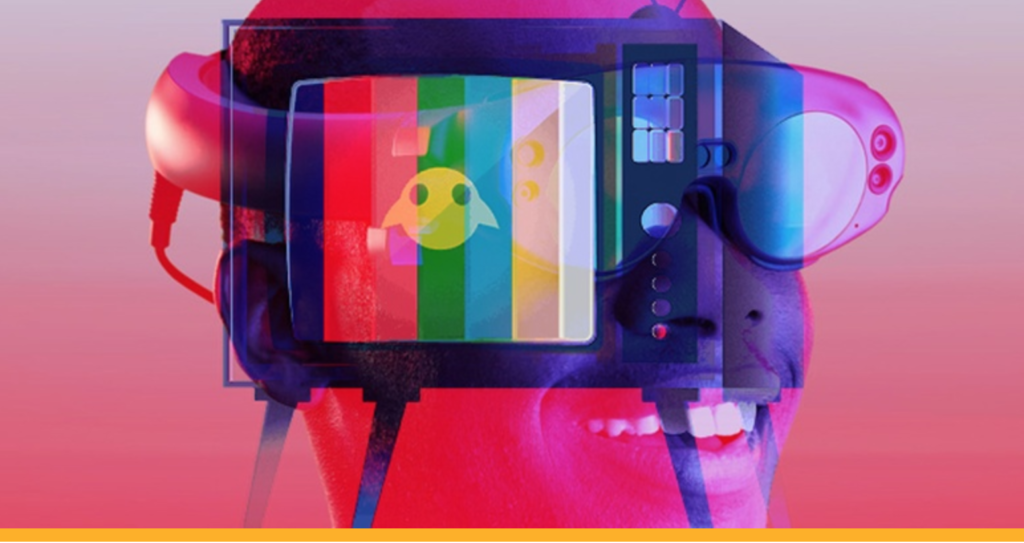
Another real world product (and where Snowcrash author Stephenson also worked for a time) is Magic Leap (“Our ultimate mission is to amplify human potential”), the American startup which produces virtual retinal display which superimposes computer-generated images onto real-world objects by “projecting a digital light field into the user’s eye” and counts Alibaba Group as an early investor.
Which is to lead into the next sometime-overlooked value extracted from a video game: Go ask your video game-playing tween/ teen how they feel about Fortnight and their developer Epic Games’ acquisition of Rocket League
(If you are a Gamer Parent, more the power to you. Maybe. I don’t think many in our generation can easily beat the kids at this stuff. If you are not a Gamer Parent, and are thinking to start when your kid is already heavily into it,good luck and Godspeed duking it out with these animals. Fresh Meat for the Lions 
It somehow became fashionable to sniff at or downright revile the big games developer as well as the actual game Fortnight, albeit played by 250 million, doubly so when they went on an acquisition spree and bought the highly popular Rocket League in May 2019. More recently in March 2021 Epic Games then bought Tonic Games Group in a move expected to develop their own “metaverse”, the originally fictitious virtual shared space featured in Neal Stephenson’s Snowcrash novel as well.
Also, Chinese entertainment giant Tencent (0700.hk) owns 40% of Epic Games. (In 2012. As in, it became cool to hate Fortnite much later than that.) In fact, here’s a list of Chinese entertainment giant Tencent’s other gaming developer holdings. It’s a lot. (My own kids: Go and practice your Chinese please 
Epilogue: Game XP is increasingly the new street cred. As with almost “everything” in life, it comes with good and bad. The bad is pretty obvious and regularly talked about. All the stuff re addiction (which I agree is real and needs to be closely monitored. Everything that’s worth anything takes work and practice – see below.) The good however… I think could be “good-er”…
To many of Son’s friends, it would appear he has a “free pass” when it comes to video gaming. Yes and no. Son plays hours and hours of video games most days – true. His video gaming hours are unconditional – not true.
“Absolute Freedom” simply does not exist – even if you are (former) President of the United States, Land of the Free, you can get your social media taken away from you for being too “free”. Virtually everything incurs some form of “price.” I had an ex-boyfriend who graffiti-ed a frat house monument with his buddies (no expletives/ slurs, just something like “frats are posers” – he sent me the picture). But after they took the pic he spent some time freaking out that they’d find out. (If you don’t want to end up potentially blackmailed by a friend-you-discover-belatedly-is-not, you should probably think about this next time someone offers you a can of spray paint.) Multiply that by 10,000 and the long, unforgiving life of the internet today.
There are underlying rules that we set in place from the very start that we worked to enforce, in Son’s case back when he was 8 or 9. While he knows they exist, he barely notices, because he has never known a gaming time without these boundaries: 1) No sex, violence or mindless games. (The last is debatable, but I mostly mean the lack of skill development from randomly spraying bullets or flame, and choose to derive amusement watching Son run around onscreen strategising as, most recently, a hamster. Because he thinks it’s hilarious for a hamster to be kicking serious butt in the game. (Daughter btw, is a moth.)
2) No screen time in the bedrooms (which has led to each kid carving out their own territory in our communal living space and me losing my own favourite space when Daughter is home, which is why I like being home when the kids are not :D).
3) If you have to game late at night (some games are most prolific in different time zones, you don’t get much sport playing in Asian time – kind of like waking up to watch English Premier League) make sure you catch up on sleep after. And the obvious one is you lose game time (especially precious late night gaming) for bad grades/ missed homework….
4) “Because other people are doing it,” is a very bad reason for doing many things (video games included). It will also likely leave you dissatisfied – because you simply have not listened to yourself, what you really want.
A schoolmate in my late teens picked up smoking from older friends. In a candid moment he told us he managed to quit because he ultimately loved soccer more – it was taking more and more work just to maintain his current level of performance in a game. He missed joining his buddies for a smoke, but he had them the rest of the time. And they were good friends – they didn’t make him feel bad for not smoking with them. Other times he had what he really wanted – his performance on the soccer field.
If you don’t know what you really want, how can you get it? My old schoolmate wanted to play his best game of soccer more than he wanted to smoke with cool older guys. If he had not figured that out for himself, he would be less happy. And still smoking.
5) Son doesn’t carry a working cellphone. Not our rule, his choice – he has a hand-me-down iPhone 6 with no line, that he rarely even brings to school, mainly for games like Brawl Stars when his friends want to play that instead of Roblox or Minecraft.) He says it’s distracting and he doesn’t want to get in trouble from not paying attention (and lose precious free gaming time at home). When he takes the MTR, he hears the affirming public message over the stations’ PA systems reminding all the commuting adults to stop looking at their phone when they’re getting off the train, and feels very good about himself 
No whatsapp, no Instagram, no Facebook.This is not new – Son has always voluntarily given up social media* and working cellphone and watches virtually zero tv. (Yet as surely as Brutus is honourable, kids playing hours of video games (only) are “addicted” and/or “cannot self regulate.” This is like when everyone freaks out and beef futures tank because of a presumptive positive in Mad Cow, but in kitchens all over the world people put raw meat and fish on kitchen counters or wipe down with cloths rinsed with water (only) because Salmonella is somehow not frightening.)
*He seriously considered social media accounts last year, but decided it was too much work keeping up with it, when VIDEO GAMES. How much time do we spend on average scrolling social media, which we don’t even really enjoy but don’t think about it? So his friends both old and new know to look for him in games and catch up there.
6) Not all video games are equal. Son doesn’t play Valorant. This was not as easy a choice – it’s one of the hot games among his friends right now. The choice we gave him was between getting Valorant and having limits imposed on gaming time (because we received feedback from sources he also agrees with, that the conditions in that game are more addictive than the other stuff he usually plays), or not play Valorant and he can play ‘til the wee hours of the morning*, on games we are infinitely more comfortable with.
*Sometimes it’s to catch up with an old friend – during the height of online learning some were in different time zones. But sure, sometimes there’s just a hot game going late at night. Son wanted a free pass for that. Some prizes and game favours only become available at that time of night, depending what server he’s playing, which is another big reason late night gaming freedom retains so much value to him that he prizes this over many other “treats”.
One of the big attractions for Valorant among some of his friends is the chance to be selected for a Youtube gaming channel and get monetised. Since this is something Son is less interested in, he chose unlimited gaming time. (So you guys out there playing Valorant – that’s why you have limited game time 
So like everything in life and structured investment products, you find the best possible combination or “package” of goods and bads that you can afford given household rules or market conditions
Even then, we had one conflict in our household. Big one. Because the Hot Hub after a heavy work event forgot Son had just completed the gruelling 5-week NCSS Coding Challenge at intermediate level with a high distinction, when he found Son playing video games at 4am one Saturday night. So next morning he gave the Ah Boy Why You Lidat You Will Fail The Big Exam And Ruin The Life speech, prompting the Ah Boy to respond with the What Talking You, You No Idea What I Yam Doing rebuttle <clap of thunder> <me doing all manner of diffusing as the kids’ pets watch with detached interest>.
(Daughter had the best reaction – without a word she turns on her heel and retires to her loft to read Goddess Girls, closing all the doors leading to the kids’ play area behind her. When the dust settles in the living room and I come in to check on her, she looks up from her book, “Oh, are they done?” Sigh. Which wise person once said that screaming at each other is still a form of communication and indicates you care enough to be upset?)

